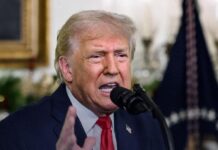 WASHINGTON: The US India Business Council (USIBC) is planning to launch a major campaign, on a scale witnessed during the Indo-US civilian nuclear deal, against certain killer provisions in the US immigration reform bill, in particular those related to much sought after H-1B visas.
WASHINGTON: The US India Business Council (USIBC) is planning to launch a major campaign, on a scale witnessed during the Indo-US civilian nuclear deal, against certain killer provisions in the US immigration reform bill, in particular those related to much sought after H-1B visas.
In addition to mounting its own effort and putting in all its resources to convince the US lawmakers that the killer provisions of the comprehensive immigration reform bill – that has been introduced in the Senate by the bipartisan group of eight Senators called the Gang of Eight – the top business group representing the interest of US companies doing business in India is in the final stages of hiring a top lobbying firm for the purpose.
With time running fast, the USIBC, its member companies and the lobbying firm are expected to fan across the Capitol Hill to what its proponents argue to make the case that the US-India knowledge economy is the centerpiece of the relationship and the free movement of technical professionals is as vital as is the free movement of manufacturing.
USIBC, which over the years has emerged as a key driver of India-US relationship, believes that both US and Indian job creation and competitiveness depend on their collective agility and ability to scale across all sectors, which underscores the very need for intensifying the US-India partnership.
The only time when the USIBC had launched a similar kind of effort was in 2006 when it hired the services of Patton Boggs to successfully lobby in favor of the historic Indo-US civilian nuclear deal at the Capitol Hill.
USIBC, which had written a letter to the Gang of Eight before they introduced their immigration bill in the Senate, believes that it makes no sense for the US to advance a policy that turns away talented, highly-educated individuals who want to contribute to America’s prosperity and competitiveness.
It argues that the bill would put the US at a relative disadvantage in the global marketplace, driving away skilled workers to go elsewhere, including to Canada and Europe.
And the proposed caps on H1B visas will instead put a cap on economic growth in both the US and India, something that is bad for US domestic markets and the global economy, it argues.
With its membership comprising of top American companies like Boeing, Pepsico and General Electricals, USIBC, which is one of the best advocate of India-US relationship in the town, feels that the bill is a missed opportunity to promote economic growth in a meaningful way.
The US and India as the world’s largest free-market democracies should be working more closely together, not setting up walls of protectionism, it believes.
Given the substantial jump in India US trade – which was USD 86 billion in goods and services in 2011 and the two-way trade crossing USD 100 billion in 2012 – USIBC argues that the two economies are irrevocably intertwined. This bill drives a wedge between the two countries, undermining economic growth for both nations, its members believe.
Not only the bill is “at best aggressively protectionist”, Indian-born, highly-skilled workers are also disproportionally affected in the bill, USIBC members fell and it is this strong believe in that it has decided to launch a massive lobbying effort at the Hill.
In recent past, USIBC members have been regularly bringing to the notice of US lawmakers the adverse impact the comprehensive immigration reform would have on the India US relationship, which US President Barack Obama has described as the defining partnership of the 21st century.
“We are deeply concerned about aspects of the negotiations that have been reported in the press that could actually hinder US innovation, growth and competitiveness, as well as do serious harm to US-India relations,” USIBC president Ron Somers had told the Gang of Eight in a letter dated March 22.
The letter had brought to the notice of the Senators how Indian IT companies are playing a crucial role in making US companies competitive.
“Particularly targeted by the proposed restrictions would be global IT services companies headquartered in India, which are in fact enabling American companies to remain globally competitive,” he then said.
“An outright prohibition on sponsoring visas and/or stringent new restrictions coupled with higher visa fees that may only apply to the Indian IT services sector would create an uneven playing field and harm US-based clients.
Such restrictions could unleash the unintended consequence of delaying US innovation, reducing local job creation, and, worse, forcing companies to move projects offshore, outside the United States,” Somers said.
“USIBC unequivocally supports the free movement of high skilled technical professionals between the two countries; our very Knowledge Economy, which we have worked so assiduously to build even before Y2K, and our shared future, depend on this,” he said.
“The free movement of technical professionals between our economies has enabled our companies, both in the US and India, to become more globally competitive and to prosper. This has been good for business – on both sides. In 2006 two-trade in goods and services was USD 25 billion, and today two-way trade in goods and services is USD 100 billion,” Somers said.
The Confederation of Indian Industry too has written to the gang of eight on this issue.
In a letter to the Gang of Eight, the Confederation of Indian Industry (CII) had expressed concerns about provisions related to H-1B and L-1 visas.
“CII is of the opinion that the provisions on H1B visas in particular would be against the interests of Indian companies, and create an unequal playing field for them. CII urges the US Congress to reject such discriminatory provisions,” said Chandrajit Banerjee, the director general of CII. –PTI






